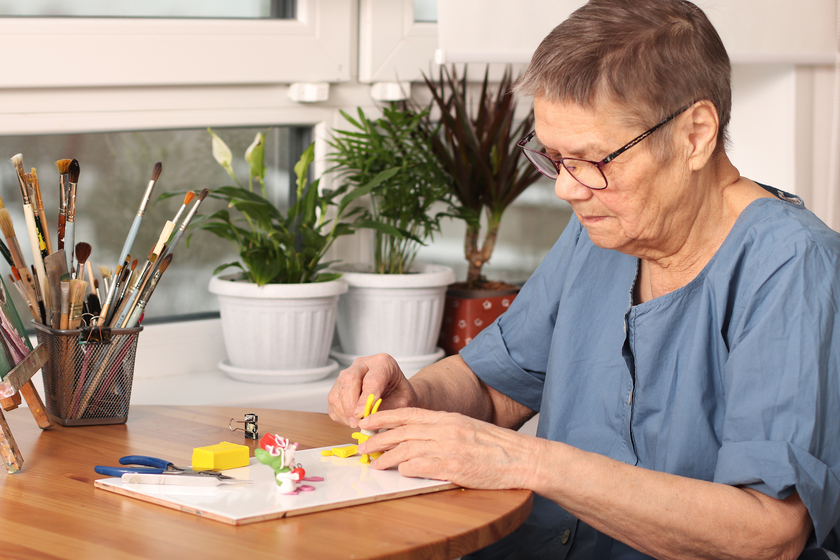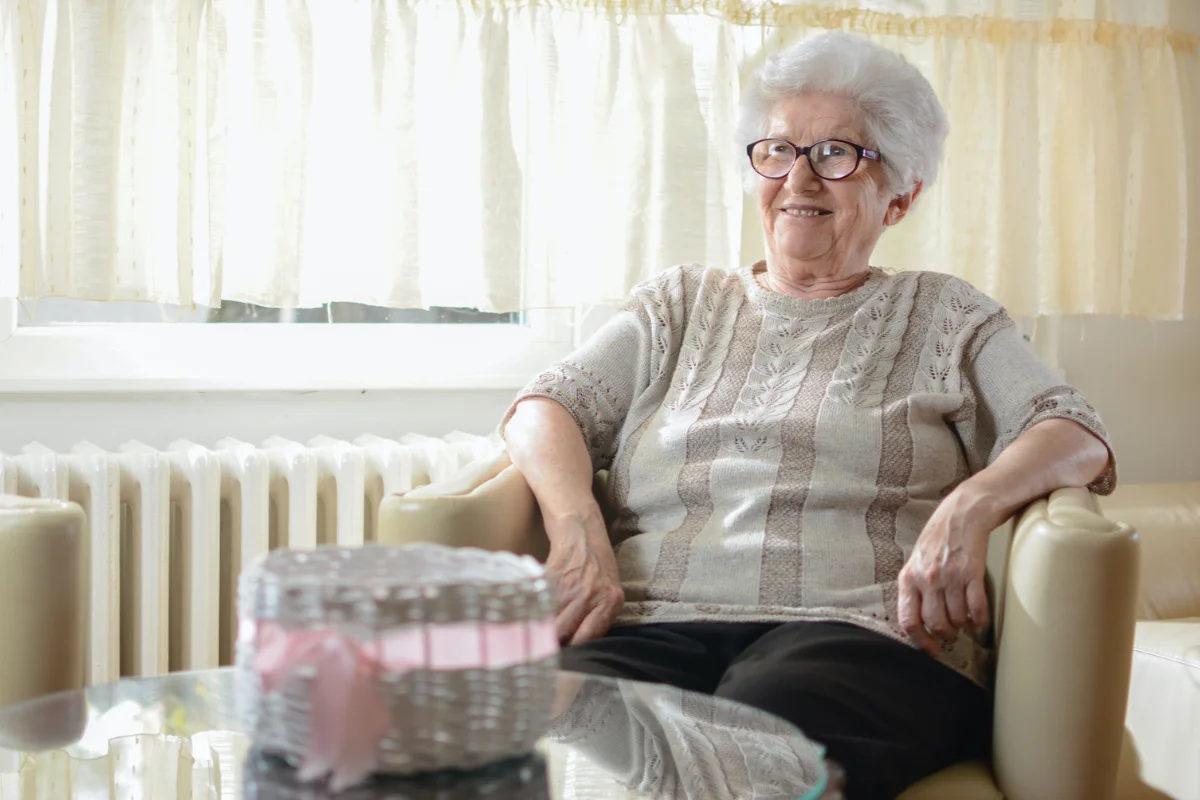Boutique Memory Care Facilities Designed for Peace and Dignity
Boutique Memory Care Facilities Designed for Peace and Dignity
Blog Article
Everything About Memory Treatment Services: Why Little Memory Care Houses Are an Excellent Option
Memory treatment solutions play an important role in sustaining individuals with Alzheimer's and dementia. Little memory care homes stand out for their tailored approach and intimate setup. With lower staff-to-resident ratios, these homes foster stronger links and tailored care. Residents profit from enhanced social communications and a secure setting. As families check out choices, recognizing the one-of-a-kind benefits of tiny memory care homes ends up being crucial. What variables should be thought about when choosing the ideal home?
Understanding Memory Treatment Services
While several may be familiar with basic senior care options, understanding memory treatment services is essential for families facing the obstacles of cognitive decrease. Memory care especially accommodates people with problems such as Alzheimer's disease and other forms of dementia. These services offer a structured atmosphere that focuses on improving the quality of life for residents via specialized care and support.Memory treatment facilities are created to guarantee safety and security, commonly featuring protected settings to stop roaming. Educated team member are available all the time to assist with day-to-day tasks, medication administration, and personal treatment. Additionally, memory treatment programs typically include cognitive excitement tasks, tailored to involve locals and promote psychological health. Households can profit from recognizing these services, as they enable educated decisions concerning their loved ones' treatment, making sure that their details requirements and preferences are attended to in a caring and encouraging manner.
The Advantages of Small Memory Care Homes
Tiny memory care homes provide unique benefits that can substantially boost the high quality of life for citizens with cognitive impairments. One considerable advantage is the intimate atmosphere, which enables personalized interactions among team and residents. This smaller sized setup cultivates purposeful partnerships, lowering sensations of isolation and stress and anxiety commonly experienced by people with memory issues.Additionally, the lower staff-to-resident proportion in little memory treatment homes allows caregivers to provide even more mindful guidance and assistance. This method not only improves safety and security however also advertises a sense of security for the residents.Moreover, little memory treatment homes can adjust rapidly to the unique needs and preferences of each citizen, permitting an extra homelike atmosphere. Such an atmosphere can encourage social interaction and engagement in activities, ultimately improving the day-to-day experiences of those living with cognitive impairments.
Personalized Treatment Plans for Residents
Customized care strategies are vital in memory care homes, as they deal with the unique demands and preferences of each citizen. These strategies begin with comprehensive evaluations carried out by knowledgeable professionals, who review cognitive capacities, case history, and individual passions. This customized method warranties that care is not just reliable but likewise respectful of each person's self-respect and autonomy.Moreover, individualized care strategies are versatile, enabling modifications as residents' requirements progress with time. This flexibility promotes a complacency and experience, which is necessary for individuals living with memory difficulties. Caretakers are educated to implement these plans continually, giving assistance that aligns with the citizens' regimens and preferences.Ultimately, individualized treatment plans boost the lifestyle for homeowners by promoting involvement, well-being, and freedom, making them a fundamental aspect of memory treatment services in tiny memory care homes.
Creating a Home-Like Environment
Developing a home-like atmosphere is important for fostering convenience and familiarity in memory care settings, as it considerably affects locals' psychological well-being. Tiny memory treatment homes usually prioritize tailored touches, such as cozy color palettes, family members pictures, and familiar furnishings plans, which aid homeowners feel extra at convenience. Including elements similar to a standard home, like comfortable space and common locations, encourages a feeling of belonging.Moreover, utilizing all-natural light and exterior areas can boost the ambience, advertising relaxation and serenity. Employee play a significant duty in preserving this environment by involving with citizens in a compassionate way, treating them like household. Regular tasks, such as cooking or gardening, can also add to a home-like feeling, offering chances for homeowners to take part in meaningful experiences. Generally, creating a nurturing setting supports cognitive feature and psychological security, making it a vital aspect of memory treatment services.
Enhanced Social Interaction and Area
Boosted social communication and neighborhood are crucial components of memory treatment solutions. By fostering individualized social interaction and developing a family-like atmosphere, these services advertise meaningful links among locals. Group events and tasks even more encourage engagement, assisting people feel more consisted of and supported.
Personalized Social Interaction
While social interaction is necessary for overall wellness, many people with memory impairments frequently battle to involve meaningfully with others. Personalized social engagement in memory care homes addresses this obstacle by developing customized tasks that provide to locals' distinct rate of interests and abilities. By focusing on private choices, caregivers can cultivate connections that reverberate deeply with everyone. Tasks such as art therapy, music sessions, and assisted discussions promote cognitive stimulation and psychological expression. Additionally, small team setups motivate friendship and enable even more intimate interactions, improving sensations of belonging. This technique not just deals with sensations of seclusion but likewise encourages homeowners to keep a sense of identity, inevitably adding to boosted mental health and wellness and lifestyle.
Family-like Environment
In a memory care setup, cultivating a family-like ambience significantly boosts social interaction and builds a sense of community among homeowners. Smaller sized memory treatment homes typically focus on intimate environments, allowing homeowners to develop closer links with one an additional and employee. This nurturing environment promotes depend on, which is vital for individuals with memory impairments. Residents are most likely to involve in discussions and share experiences, developing an encouraging network that reduces feelings of solitude. The knowledge of shared areas and regimens adds to a sense of belonging, better motivating social interaction (personalized memory care). In such settings, psychological bonds grow, causing boosted general health and a higher quality of life for citizens as they browse their everyday experiences with each other
Group Activities and Events

Safety and Security Functions in Small Houses
Several small homes made for memory care integrate necessary safety and security and security attributes to assure the health of residents. These homes frequently utilize protected entry and leave points to avoid roaming, an usual problem among individuals with memory impairments. Furthermore, monitoring systems and alarm systems improve surveillance, ensuring that team can quickly reply to any type of unusual activities.Interior designs are customized for safety, with minimized hazards such as sharp corners and clutter-free pathways. Handrails and non-slip floor covering are commonly set up to decrease the danger of drops. Employee are learnt emergency situation procedures, guaranteeing they are gotten ready for this hyperlink different situations.Moreover, individualized treatment strategies might consist of analysis of specific safety and security requirements, providing customized remedies for each and every homeowner. link On the whole, these safety and safety features develop a caring atmosphere where residents can prosper while maintaining their dignity and freedom.
Exactly how to Select the Right Memory Care Home
How can family members guarantee they choose one of the most appropriate memory care home for their liked ones? The decision needs careful factor to consider of a number of variables. Initially, households must assess the facility's staff certifications and training, guaranteeing that caretakers are experienced in taking care of memory-related conditions. Next, it's essential to assess the home's atmosphere, concentrating on safety attributes and whether it fosters a sense of area and belonging. Checking out the facility can supply insight right into everyday tasks and the social atmosphere, which are important for mental stimulation and emotional health. Additionally, family members must ask about the care strategies offered, guaranteeing they are tailored to private needs. Lastly, considering the home's place and ease of access for family check outs can add to a smoother shift. By addressing these elements, households can make an educated choice that prioritizes their loved one's comfort and lifestyle in a memory treatment setting.
Frequently Asked Concerns
What Credentials Should Staff Members in Memory Treatment Homes Have?
Staff members in memory treatment homes should possess appropriate qualifications, experience in dementia care, strong communication abilities, and empathy. Ongoing training in behavioral administration and restorative interventions boosts their ability to sustain homeowners efficiently.
Just How Do Memory Treatment Solutions Differ From Typical Assisted Living?
Memory care solutions concentrate especially on individuals with memory disabilities, giving specialized assistance and organized settings. In comparison, standard assisted living offers basic aid with day-to-day tasks, doing not have the tailored technique essential for those with cognitive challenges.
What Kinds of Tasks Are Offered in Memory Treatment Residences?
Memory treatment homes normally use a selection of tasks designed to involve residents. Usual options include art treatment, songs sessions, cognitive video games, workouts, gardening, and social events, all targeted at enhancing wellness and cognitive function.
Can Residents Bring Their Own Personal Belongings to Memory Care Houses?
Citizens can typically bring their own belongings to memory treatment homes, enabling them to individualize their living space - personalized memory care. This technique helps create a familiar atmosphere, advertising convenience and a feeling of identification for the people

How Are Member Of The Family Associated With the Care Refine?
Member of the family play an essential duty in the treatment procedure, commonly taking part in decision-making, going to treatment meetings, and supplying emotional assistance. Their involvement cultivates a collaborative atmosphere, enhancing the homeowner's overall health and top quality of life. While several may be familiar with general elderly treatment alternatives, comprehending memory care solutions browse around these guys is important for family members facing the obstacles of cognitive decline. These solutions offer a structured setting that concentrates on improving the quality of life for residents via specialized care and support.Memory treatment centers are developed to assure safety and protection, often featuring secured environments to stop straying. Individualized treatment plans are crucial in memory care homes, as they provide to the one-of-a-kind needs and choices of each homeowner. Team participants in memory treatment homes need to have pertinent accreditations, experience in dementia care, solid interaction skills, and concern. Memory care solutions concentrate particularly on individuals with memory disabilities, supplying specialized support and structured settings.
Report this page